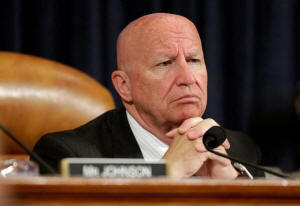|
House tax chairman confident on reform,
others less so
 Send a link to a friend
Send a link to a friend
 [August 16, 2017]
By Susan Heavey and David Morgan [August 16, 2017]
By Susan Heavey and David Morgan
WASHINGTON (Reuters) - The top tax law
writer in the U.S. House of Representatives insisted on Tuesday that tax
reform will happen this year, despite concerns among some experts that a
tax code overhaul could drag into 2018, or even collapse altogether.
President Donald Trump is still seeking his first major legislative
achievement and has focused on tax reform. But he has done little to
advance it recently, amid constant distractions over Russia, North Korea
and race relations.
In Congress, as they did for their failed push to dismantle Obamacare,
Republicans are ramping up a nationwide publicity campaign in favor of
tax law changes without first deciding on exactly what changes they want
to make.
House Ways and Means Committee Chairman Kevin Brady, a Texan, is
scheduled to deliver a speech on the issue on Wednesday at former
President Ronald Reagan's ranch in Santa Barbara, California. Other
committee members will also attend.

Ahead of his remarks, Brady told CNBC on Tuesday that the House, Senate
and White House are united around a common tax plan, with details being
hammered out.
No legislation has been introduced. House Republican leaders had an
ambitious plan earlier this year, but key pieces of it have been
discarded. No replacement revenue-raising provisions have been agreed
upon.
Nevertheless, Brady said, "We are on track to deliver transformational,
bold tax reform this year." At the same time, he acknowledged that
details have yet to be finalized: "We have a lot of work left to do."
Corporate lobbyists and independent experts said Congress and the
administration are far apart on critical issues such as how to slash
rates without ballooning the federal deficit.
"The Republicans all agree on lower tax rates, just not on how to pay
for them," said Stephen Shay, a Harvard Law School lecturer who advised
on tax policy at the U.S. Treasury under former Democratic President
Barack Obama.
Shay put the odds of tax reform occurring before the November 2018
midterm congressional elections at 50-50.
Expectations for tax reform have fallen off sharply among investors on
Wall Street, where many now believe congressional gridlock is more
likely than an overhaul.
[to top of second column] |

Chairman of the House Ways and Means Committee Kevin Brady (R-TX)
listens to testimony before the committee on tax reform on Capitol
Hill in Washington, U.S., May 23, 2017. REUTERS/Joshua Roberts

"Economically, it (tax reform) is a no-brainer. But from here to
there, it's a long and winding road. And we're finding more land
mines on that road pretty much every week," said Brad McMillan,
chief investment officer at broker-dealer Commonwealth Financial
Network.
Major tax reform last occurred in 1986 as the result of a broadly
bipartisan effort that took several years. Under Trump, tax reform
is a highly partisan venture.
Republicans have only a few months to overcome internal divisions
and other obstacles to get tax reform done by Jan. 1.
The push will collide next month with efforts to prevent a
government shutdown and a default on U.S. debt.
Still, some experts said tax legislation might still fly.
"There's still an expectation that there will be some sort of tax
bill that gets to the president's desk that he can sign before the
midterm elections," said Rohit Kumar, a tax policy expert at
accounting and consulting group PwC and a former senior Senate tax
aide.
"I think there's a lot of uncertainty about whether we can call that
'tax reform' or whether that's something more like 'tax relief.'"
(Additional reporting by Makini Brice in Washington and Caroline
Valetkevitch in New York; editing by Frances Kerry and Dan Grebler)
[© 2017 Thomson Reuters. All rights
reserved.]
Copyright 2017 Reuters. All rights reserved. This material may not be published,
broadcast, rewritten or redistributed.

 |